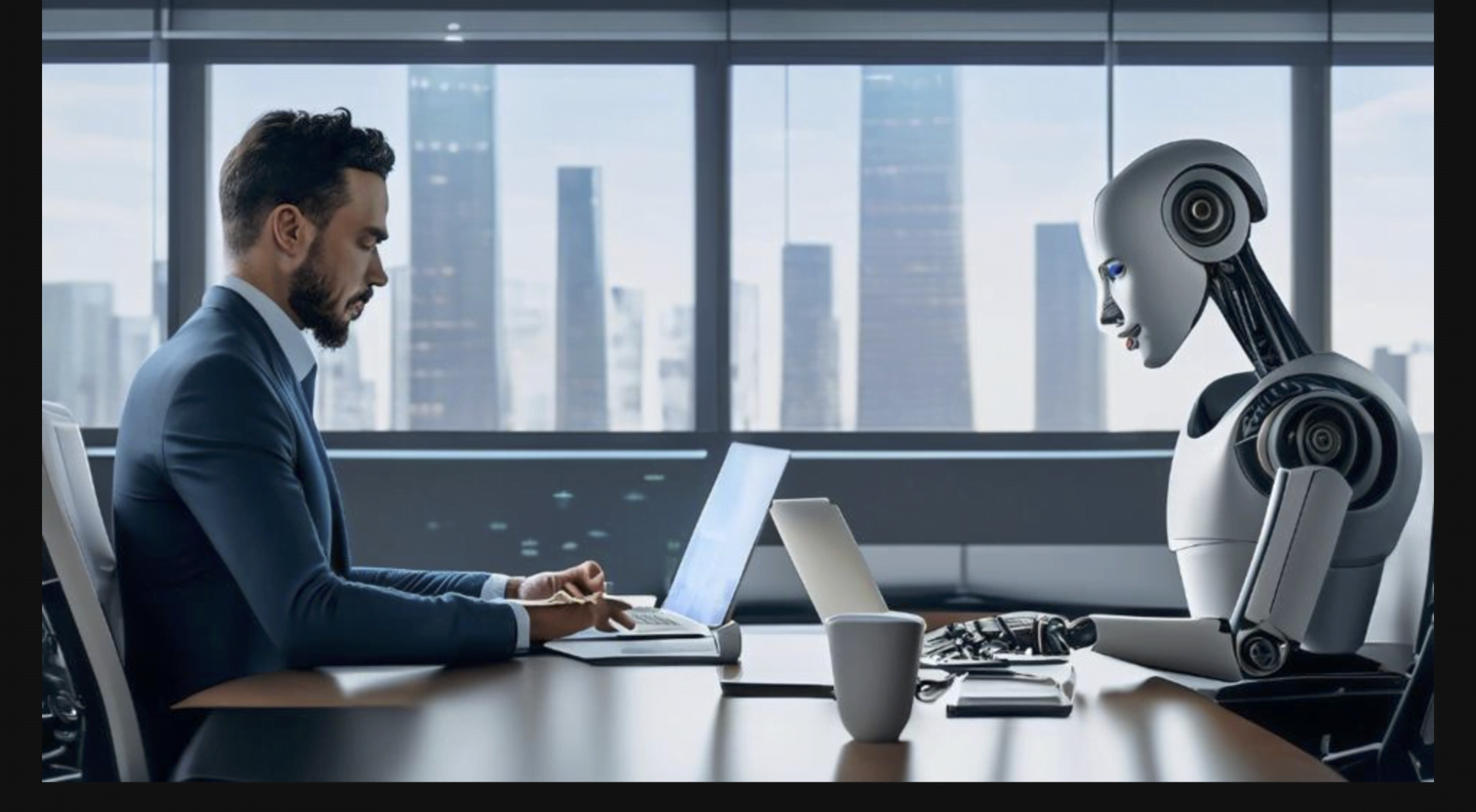Artificial Intelligence has taken the world by storm. It dazzles with its speed and scale. Often, we are left awestruck by its apparent intelligence. But closer inspection reveals a fundamental truth. Behind every smart assistant, recommendation system, or predictive model is a team of people. These individuals made decisions about what the system should do, what data it should learn from, and what trade-offs are acceptable. We realize that AI is inseparable from human effort.
The more we treat AI as an autonomous force, the more we overlook a simple fact: AI has more to do with humans than we assume. The most critical questions ahead of us aren’t about hardware or math; they’re about people.

Source: diplo-media
The Illusion of Autonomy
Artificial Intelligence seems neutral. It appears to operate in a cold, objective manner. It runs calculations and produces results faster than any human. But these results don’t emerge in isolation. Every algorithm bears the fingerprints of its creators, reflecting their intentions and blind spots.
AI is like a kitchen knife: powerful and precise, yet entirely at the mercy of the hand that wields it. The notion that AI is truly independent is an illusion. It doesn’t wake with purpose. It doesn’t question, doubt, or decide. It responds, executes, and follows.
Strategy First: AI Follows Human Intent
AI never asks, "What problem should I solve today?" That question is ours. We set the agenda. Whether tracking cybercriminals, optimizing supply chains, or nudging consumers toward a purchase, every application begins in a human mind.
With the same technology, outcomes can differ radically. It depends on what leaders choose to optimize for. A company focused on health may use machine learning to detect early-stage cancer and prevent loss of life. A retailer might use the same system to drive impulse buys. The difference lies not in the code but in the compass behind it.
We Teach the Machines—Bias and All
AI doesn’t "understand" the world. It learns from the data we provide, the patterns we create, and the decisions we make,wise or flawed. This explains why facial recognition systems have failed to identify darker skin tones accurately or why hiring algorithms have favored male candidates over equally qualified women. These aren't the machines' faults; they're reflections of our own biases, scaled and automated.
AI does not care about the data it processes. It has no stake in truth, no concern for fairness, no awareness of harm. But we do. And so the meaning and the danger lies not in the machine, but in the mirror it holds to human judgment. These systems do not invent the world; they inherit it, repackage it, and deploy it at scale. When a model reinforces bias, excludes a voice, or quietly rewrites a norm, it is not acting alone. In fact, it is executing the preferences of those who built it, and those who benefit from it. Who owns the data owns the power to reshape reality. Algorithms are not just tools of prediction, they are instruments of governance.
Even seemingly technical choices,what data to include, how to define fairness,are human decisions. When we train machines, we don’t just give them facts; we encode our values and history. We pass along the good, the bad, and the deeply subjective.
Ethics Is a Leadership Choice, Not a Feature
Ethics isn’t a plugin. It can’t be downloaded or executed through code. It’s a mindset. Responsibility begins when leaders decide what to build. They ask why it matters, who it serves, and what risks are acceptable. Too often, we confuse what AI can do with what it should do. In the space between capability and conscience, unintended harm takes root.
Thought Leaders Sound the Alarm
Leading thinkers have underscored this gap. Gary Marcus advocates for hybrid models that acknowledge uncertainty rather than obscure it. Yoshua Bengio has called for auditability standards and risk-based AI classifications. “The logic is straightforward: if the goal is trust, then the code must be auditable, the weights reviewable, and the outputs reproducible.”
Geoffrey Hinton, reflecting on his own work, has warned of existential risks and urged stronger human oversight. National regulators like CNIL have issued clear governance frameworks that emphasize transparency, traceability, and accountability in AI development (2022 AI Recommendations).Regulation as a Moral Compass
The Digital Services Act (DSA) laid early groundwork for algorithmic accountability in the EU. By regulating how platforms use AI, especially recommender systems, it complements the AI Act and makes ethics both a leadership choice and a legal obligation.
Efforts like the EU AI Act show how governance can shape AI’s future. This act, the world’s first comprehensive legal framework for AI, classifies systems by risk and places strict requirements on high-risk models. It emphasizes proportionality and human oversight in high-risk systems like biometric surveillance, predictive policing, and hiring tools. Rather than stifling innovation, the Act signals that AI must center human dignity, rights, and safety. It reminds us that ethical clarity is foundational, not optional.

Source: Forbes
What You Reward, You Reinforce
AI pursues metrics, not values. Reward engagement, and you build systems that fuel outrage. Prioritize efficiency, and you risk decisions lacking empathy or nuance. These aren’t bugs. They’re features. The systems follow the goals we set.Business thinker Eli Goldratt said, "Tell me how you measure me, and I will tell you how I behave." The same applies to machines. What we measure, we magnify. What we ignore, we risk amplifying.
The Real Breakthrough Is Governance
When Microsoft’s chatbot Tay turned offensive within hours, and years later ChatGPT became globally trusted, the difference was oversight. Judgment, constraint, and care made the difference. As AI evolves, the systems that supervise, audit, and regulate it matter more than the models themselves. Models are technical. Governance is human.
Laws are evolving, but company culture must too. Transparency, accountability, and shared responsibility should be embedded in operations.
Like cybersecurity, AI literacy can’t rest on a few experts. It must include developers, executives, designers, policymakers, and scientists. The latter have a particularly urgent role: as with clinical trials in medicine, scientific inquiry must extend beyond functionality to systematic safety evaluation. They could identify not only what AI systems can do, but what they might do, unpredictably, at scale.
Yet amid these high-level debates, we must not overlook those with the most at stake: the next generation. Children, far from being shielded from this technology, must be invited to shape it. As the first generation to grow up fully embedded in AI-powered systems, they are not just future users, but co-designers of the world being built around them. UNESCO’s global guidelines on AI in education make this clear: young people must be equipped not only to adapt to these systems, but to question, challenge, and help design them. Failing to involve them is a governance failure.
Understanding AI’s workings and impacts must become a collective effort. The future of responsible AI belongs in boardrooms, classrooms, and homes, not just labs.
Conclusion: A Human Future, Not a Technical One
It’s time to stop treating AI as destiny. Every algorithm reflects thousands of human decisions. What gets built, what gets funded, what gets ignored,these questions demand asking. If we want AI to serve humanity, humanity must lead.
We must invest in more than engineers. Ethicists, designers, educators, and social scientists are equally essential.They shape ecosystems that value context as much as capability. However advanced the machine, people determine its impact. The real story of AI is not machines growing smarter, but humans growing more responsible.